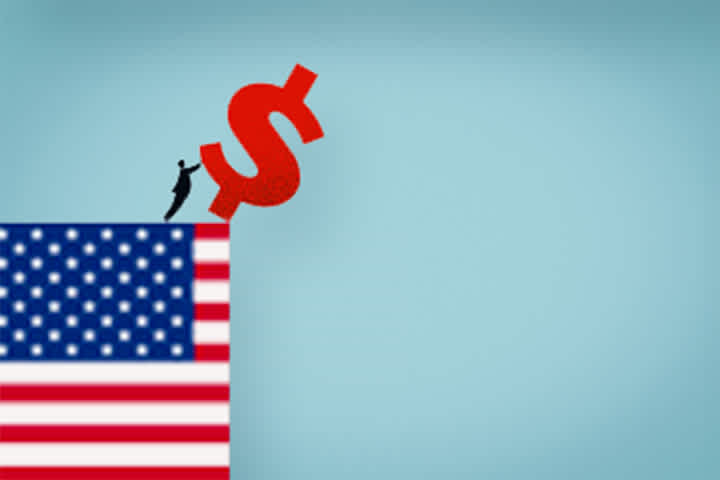The treacherous stock market
Keytrade Bank
keytradebank.be
May 09, 2019
6 minutes to read
My Mister Market Magazine recently celebrated its fifth anniversary. So much has happened since the end of March 2014. We had a lot of crazy days and some events we had never experienced before. Trump at the White House, really? The endless, embarrassing Brexit saga is another example. All those new financial phenomena, from Alibaba to Uber to Aramco, seemed so far-fetched. What seemed even more far-fetched, was the speculation tax. A centre-right government deliberately obstructing families in their independent pursuit to achieve a reasonable return on their savings seemed incredibly unreal.
And yet in our world, the world of the stock market, nothing has changed, really. The investor of 2019 is like an identical twin of the investor of 2014. And, undoubtedly, the investor of 2024. We still do not know what the future will bring, and we are still finding it hard to deal with that. The future will continue to be unpredictable and human nature is not going to change, so the game of buying and selling will always remain similar to what it is today.
Investors' questions will also stay the same. One question I regularly receive in my mailbox since I started my magazine is: 'What will the stock market do?' It's always about timing. The words may be a little different depending on the current stock market performance. At the end of last year, the main concern was: 'Should I sell everything?' After a few months and a welcome price recovery, this has now changed to: 'Should I not wait a bit longer to buy?'
All these years, my answer has always been the same: no.
I have to explain and defend that answer, because a simple 'no' is difficult to accept, and rightly so. After all, I am an investment professional, so I am expected to provide a more specific answer. Many others do. The financial press, particularly some manic American news channels, are teeming with market experts who are willing to give precise instructions: buy this, sell that.
Of course, though those television gurus do not really know either. Nobody knows whether in two months' time, prices will be 20% lower or 20% higher than they are today. So why wait to buy? Why sell everything?
Such attempts at stock market timing are always to your disadvantage. Stick with your strategy, follow a reliable system, buy and sell individual shares if your predetermined price levels have been reached, and above all, do not fully exit and re-enter the stock market. ‘The stock market entrance should not be a revolving door as in supermarkets’, Zanna, Mister Market Magazine's very own investor, says. ‘It should be a door without a handle on the inside. Once you're inside, you stay inside.’
Zanna does not time the market, because she knows it cannot be timed. This is actually unfortunate, because the return that investors can show off afterwards is largely determined by the entry level. If she were able to time the market, she could get much higher returns than her annual average of 12.2% over 22 years. However, if she were convinced that she could time the market, her return would undoubtedly be much lower.
Fortunately, she knows that she cannot. A flawless crystal ball would come in very handy, of course. If she had one, she would have put all her savings in Belgian shares at the beginning of March 2009. If her savings were 10,000 euros, those 10,000 euros would be worth 31,262 euros today (according to the Belgium All Shares Return Index). If she had invested the same 10,000 euros in the same shares just six months earlier, she would now have 16,756 euros. Barely half. And if she had invested her 10,000 euros on the Brussels stock market exactly twelve years ago, at the end of April 2007, then they would be worth 11,934 euros today.
The difference between 11,934 and 31,262 euros is huge for an identical collection of shares that were purchased a long time ago and not that far apart (10 and 12 years ago).
At which of these times was the hunger for stocks by far the greatest, do you think? You are right in thinking it was April 2007. And the lowest? Again you are right: March 2009. Let this be the ultimate proof of the stock market's malevolence. This treacherous siren lured in unsuspecting savers at the peak of 2007 and drove those same savers far away at the low point of 2009. We were eager to buy at the peak and we anxiously sold when the market bottomed out. No wonder that the stock market is sometimes described as 'the temple of regrets'. No wonder also that the knowledgeable professor Roland Van der Elst once said: 'The stock market does not exist for your benefit.'
Whoever is in the White House, whatever annoying taxes coming Belgian governments will quickly be coming up with, the malice of the stock market siren is nothing new. In years such as 1971, 1999 or 2007, most of small investors' money flows into the stock market, and years of stock market misery begin. In years such as 1981, 2003 or 2009, most small investors flee from the stock market in disgust, and a long stock market boom ensues.
Even on a weekly basis, the best entry and exit times are not the ones that seemed like the best option. Was 13 October 1987 a good time to buy? Nothing seemed to suggest the opposite, so many bought stocks that day. One week later, on 20 October 1987, on average all shares were worth 25% less and we added Black Monday to our lexicon of stock market crashes. So was 20 October 1987 a good time to buy then? It sure was. About the best time you could possibly imagine. Only it did not seem so on the day. Everything seemed to suggest that all stock market money was going absolutely nowhere. Very few dared to buy.
To put it another way: timing the market is useless. Do not try to base your entry point on the market sentiment of the moment and the verbal diarrhoea of advice from specialised newspapers and television channels. So what is it you can do?
Spreading your investments is a good idea. You can make a purchase for a fixed amount each month, each quarter or even each year at the same time, regardless of the current sentiment. On that day, do not let any prophecies that a crash is near deter you, do not get carried away by implausible forecasts that 'this share is going to increase tenfold'. Always stick with your fixed amount, whether it is 50, 1,000 or 5,000 euros. This ensures that you will buy more shares for that amount when they are cheap and less when they are expensive. It is a way of defying the evil stock market siren. You will outsmart her. Well done!
Pierre Huylenbroeck is the author of Onsterfelijk Beursadvies and Iedereen Belegger. He publishes Mister Market Magazine, a biweekly digital journal for curious investors. Please download a free trial issue.


